We’ve done videos, coaching calls, and podcasts teaching how to build online credibility for real estate. Credibility isn’t a new thing, right?
In competitive real estate markets, your online credibility score—the subconscious evaluation prospects make when visiting your website—can dramatically impact your deal flow and determine whether potential clients choose to work with you.
Key Takeaways
- Visual elements like clean logos, authentic local images, and properly formatted testimonials with real photos and names significantly impact your website’s credibility.
- Your “About” page is typically the third most visited page on real estate websites because prospects are evaluating whether you’re the right company to solve their problem.
- Every element on your website either adds to or detracts from your credibility score, including social media links that should only be included if they enhance rather than harm your professional image.
Audit your website and marketing materials to eliminate negative credibility points and strengthen positive ones—from logo clarity to content authenticity—to stand out in a crowded marketplace and earn the trust of potential clients.
Table of Contents
- How to Build Online Credibility for Real Estate
- Having Clean Logos Is Important
- Credibility Badges
- Build Credibility With Testimonials
- Use Real “Local” Images
- One Of The Most Important Pages On Your Website
- Optimizing Your Website For A High Credibility Score
But, it amplifies when you have a competitive market. When you’re in a market with a lot of competition but lack online credibility, you have lower deal flow.
When a buyer or seller has multiple choices, they often look at the agent’s or investor’s credibility.
To help you learn how to build online credibility for real estate, we’ve devised the “credibility score.”
Whenever you go to a store, whether online or in person, you go to the grocery store. You’re walking in the grocery store, and subconsciously, there are all kinds of things that you’re doing to size up that grocery store.
Is the floor clean? Are the vegetables arranged in a way that makes sense? Are they rotten, or are they good? Are the people who work there wearing good clothes, clean clothes, or something that’s a uniform that looks like they’re put together? Are they friendly? Is the signage in the grocery store in a make sense way?
All these little things stack up to create this score subconsciously in your mind. You’re probably not going to work with that grocery store because one of those things is wrong.
You’ll probably not choose not to work with the grocery just because the signage isn’t exactly clear and clean. But, when you stack up all those together, and there are these negative credibility marks, what happens is, you leave the store and you go somewhere else, and you’re not sure why sometimes.
You can’t place your finger on why you chose not to work with that company but another one, but this credibility score is subconsciously stacking up in your mind.
We’re going to walk through as an agent or an investor. How do you size your business and find your credibility score?
The first thing you need to look at is to realize people are subconsciously sizing you up, whether you think about it or not. If you’re doing what everyone else is doing, you’re probably not giving yourself many positive credibility marks.
What we’re going to be doing is looking at the website. There are a lot of different things that people are doing when they’re trying to size up your website and size up your credibility score subconsciously.
How to Build Online Credibility for Real Estate
Having Clean Logos Is Important
The first thing they will be looking at is your logo area, your logo area. Is your logo clean, or is it fuzzy? Is it pixelated? Does your logo match the colors and the branding on your website?
I know that’s a little thing, but it’s one of those things that people can go, “Well, there’s something off. I can’t place what it is, but there’s something off,” so make sure you have a very clear, clean, simple logo design that delivers the benefit or delivers the good, warm, fuzzy feeling.
Make sure that the colors on your website match up. That’s a positive credibility mark. Here are a couple of good examples.


Credibility Badges
Are you using specific badges to show that third-party processes and third-party entities vet you? For example, the Better Business Bureau.
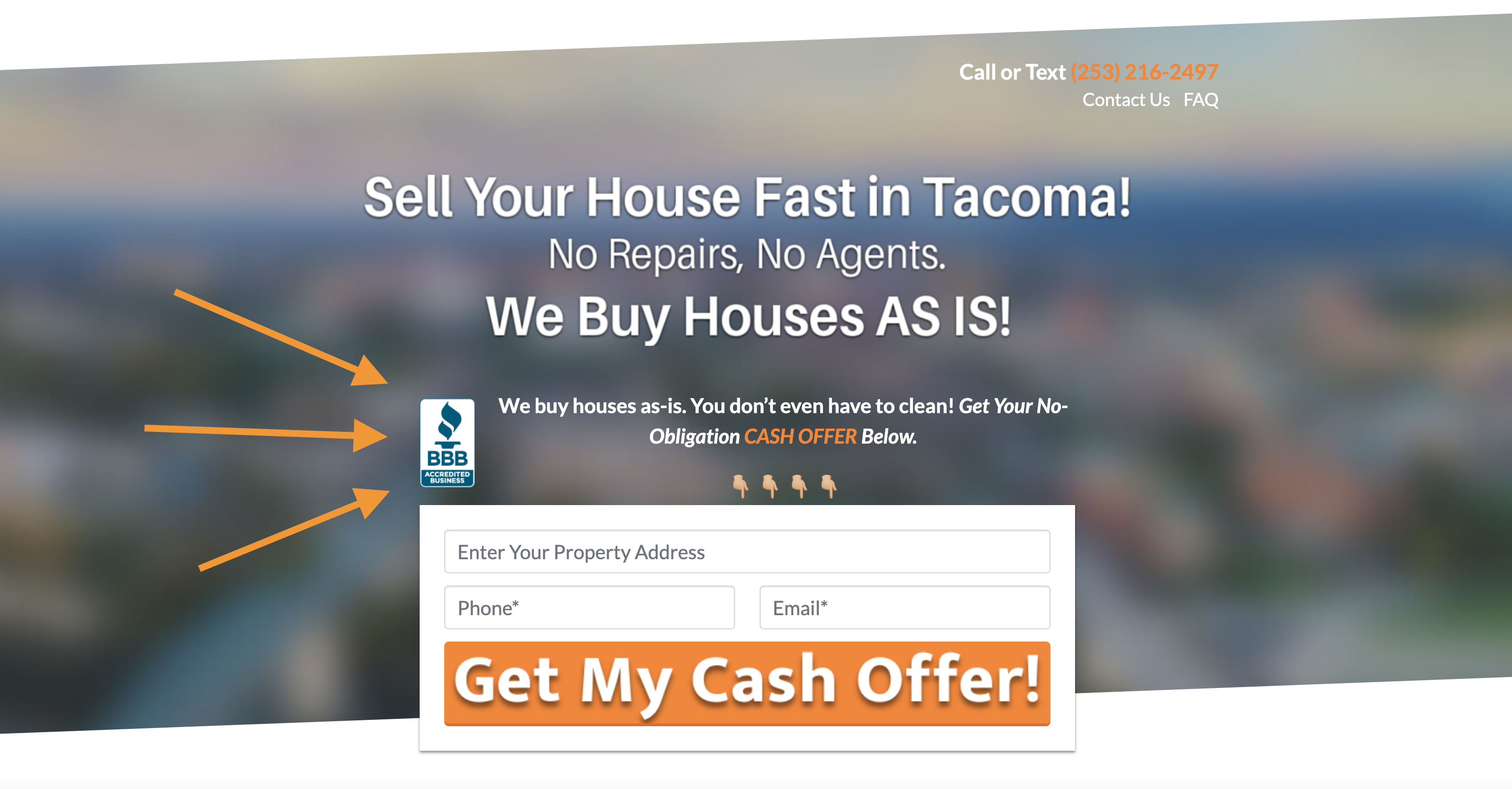
Maybe you’re a member of the local Chamber of Commerce. Or, a designation with some entity such as a CCIM in your profession is a respected designation. Those badges help in a big way. Those are all positive credibility marks.
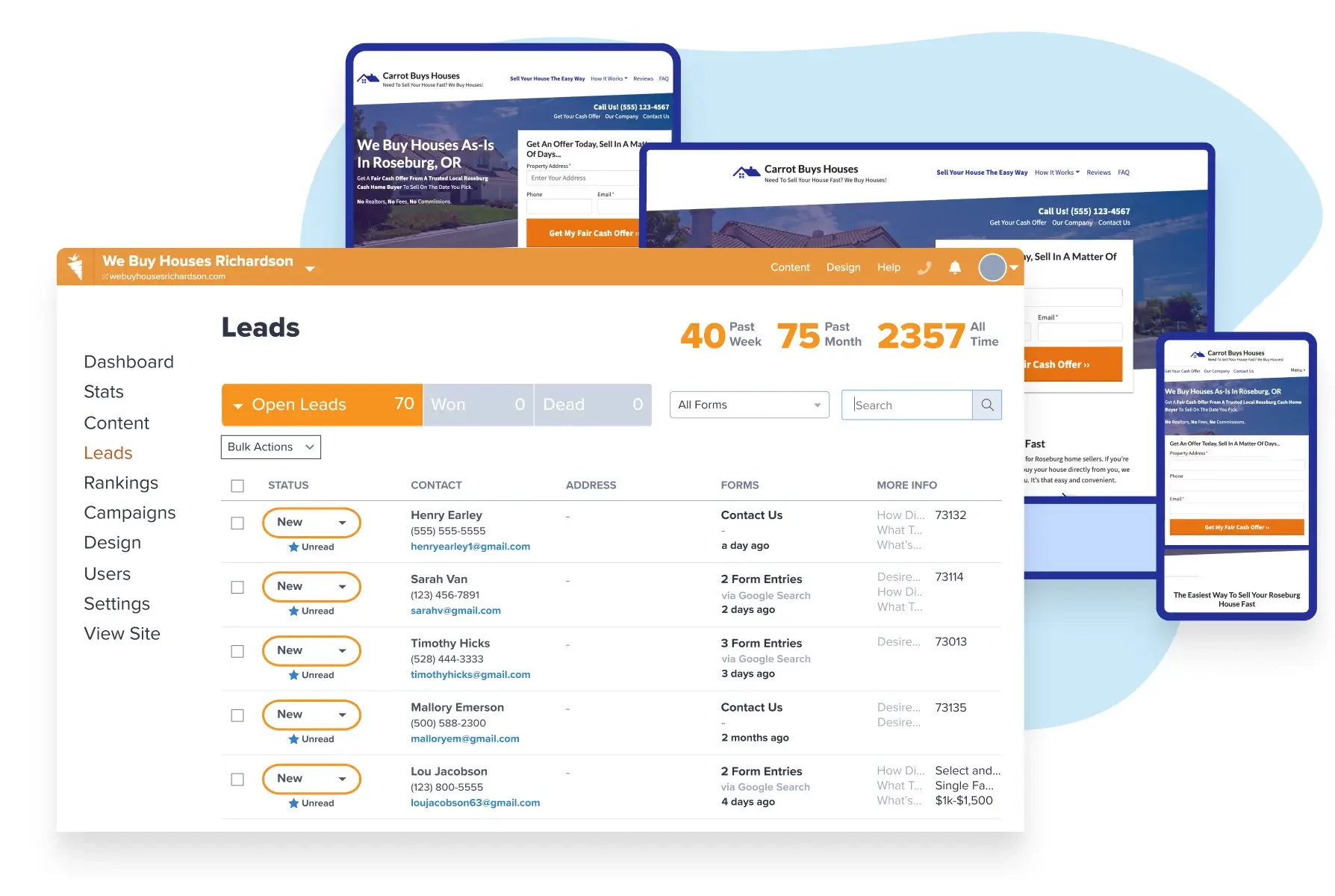
Demo Carrot: How many deals are you losing to your competitor’s website?
Take a Free DemoBuild Credibility With Testimonials
Let’s say you have social proof on your site, so you have testimonials formatted correctly. Just because you have testimonials doesn’t mean that’s a positive credibility mark.
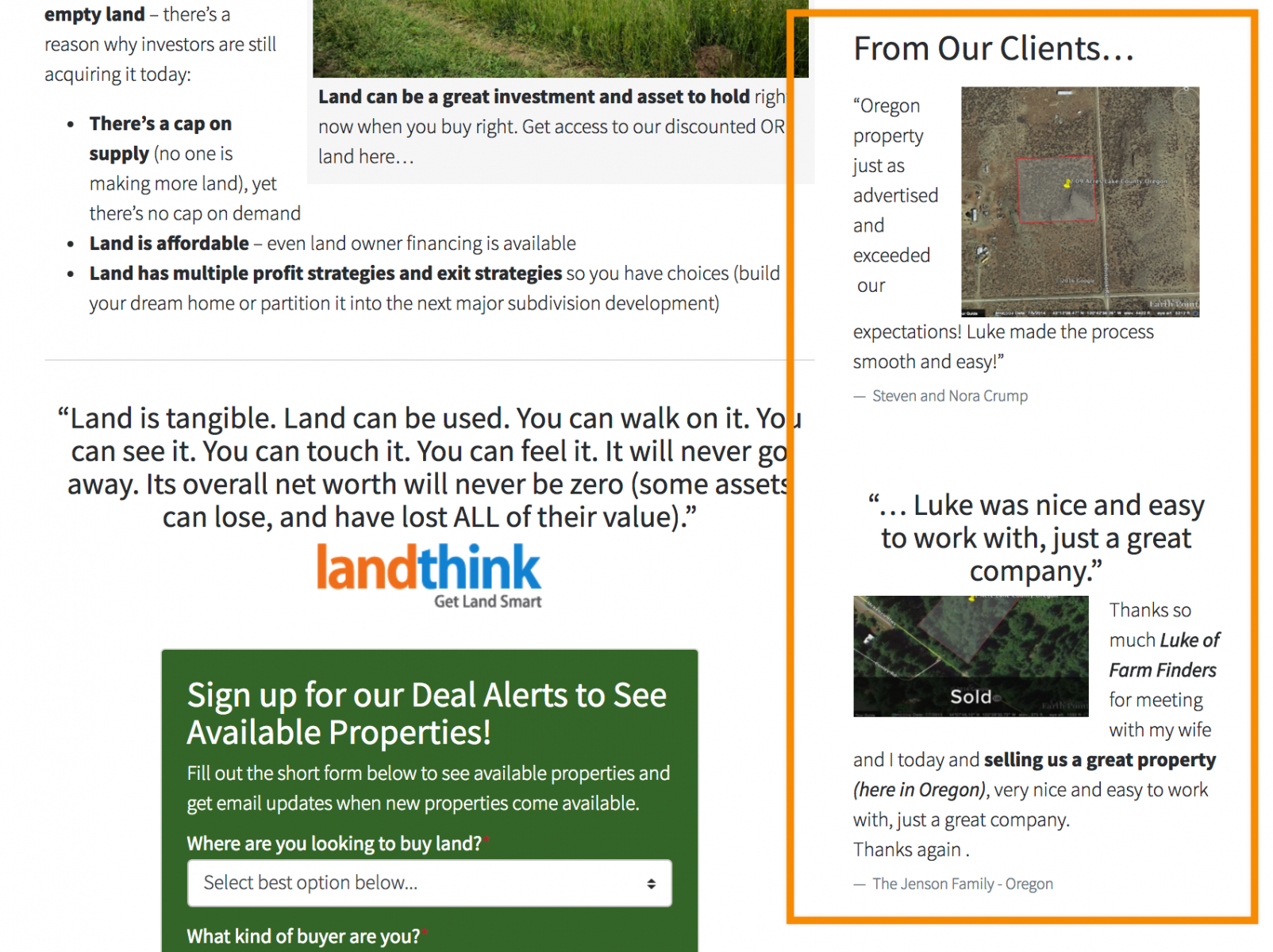
We have other content on how to format a testimonial correctly. If you format a testimonial incorrectly, it could be a negative credibility mark because if you just put a testimonial up there that has the person’s words.
Let’s say you just used their initials, TK, with no picture or other context around that testimonial. People think it’s not real, so it could detract from the credibility.
When you’re building out your testimonials, have pictures of the person or photographs of the property. Put as much of the person’s information on there. Tom, whatever, and then their location. Trevor Mauch, location Roseburg, something like that. It adds more credibility to it.
Use Real “Local” Images
Other things, the content, the pictures, all of these things stack up. Are your photographs localized?

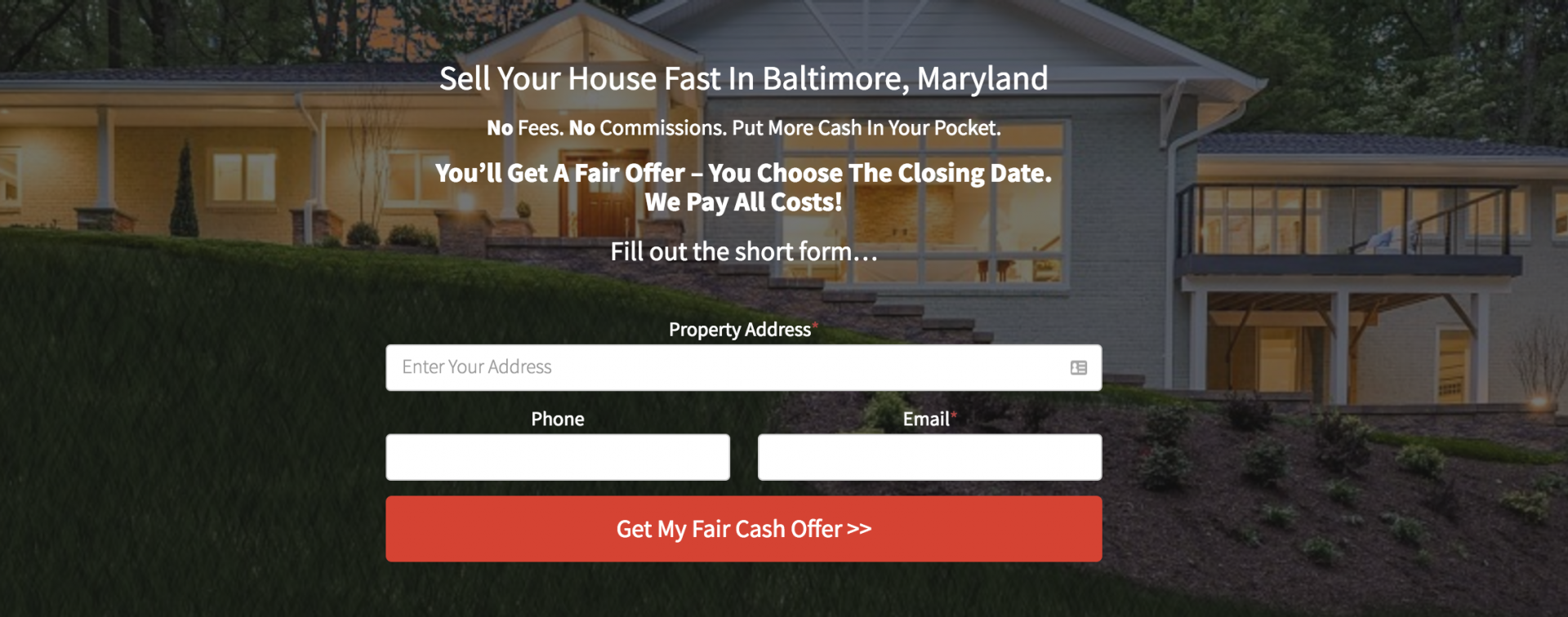
Do you have authentic images on your website? Or are the photos stock images? In the studies, we’ve done and other studies we’ve corroborated with, stock photos don’t lend toward credibility, especially if they’re too stocky.
There are stock photos that look amazing and stock photos that look clearly like stock photos.
People look at a website and go, “I can’t connect with this website. It looks like a stock photo. Maybe I’ve seen the same photo on another website.” If you’re a Carrot member, swap all the images with local, real ones for your market.
Get rid of any stock photos of people you’ve not worked with and put pictures of people you’ve worked with. Make sure that the images look like houses that are in the area. If you’re in Phoenix, your photographs should look way different than someone up in the Northeast part of the US.
One Of The Most Important Pages On Your Website
Our data and we’ve shown in several blog posts that the number three most visited webpage on all websites in our system is always the “about page.”
What are you doing to build a storyline and connection with your prospects?
They’re going to your about page because they’ve already probably discovered that you have a solution. You have a solution that can solve their problem. They’re already past that. They don’t need to know whether you can solve their problem.
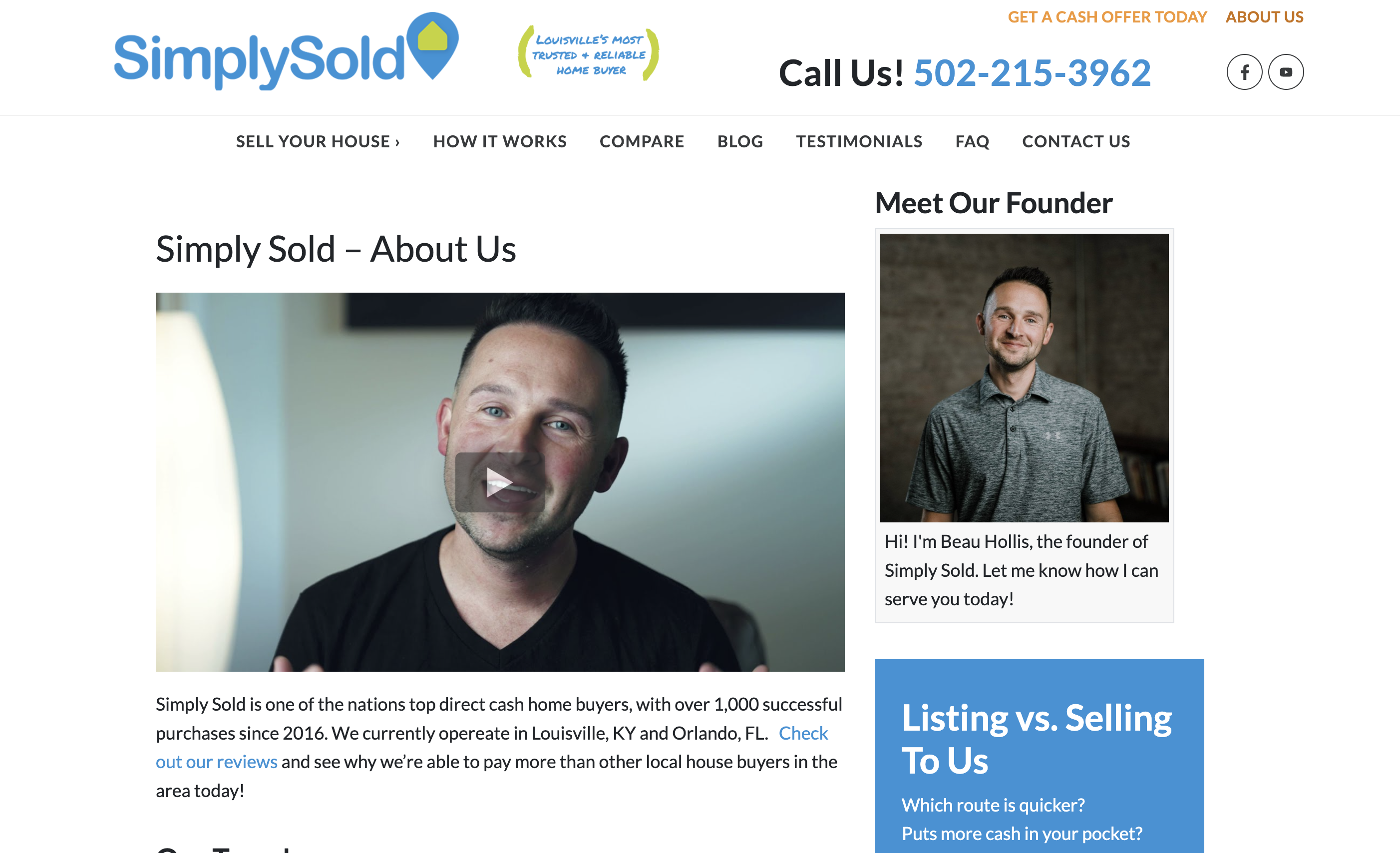
They need to know whether you are the company they want to choose to solve their problem, so they’re going to your about page.
If you’re using social media, such as adding your Facebook link, make sure they give you positive credibility, not adverse.
If your Facebook page isn’t built out, has minimal engagement, and stock photos, that’s negative credibility. So get it off.
Don’t put that link on your website. Don’t put the link in your marketing. If you’re going to use social, use it to build your credibility. Never use it as negative or neutral credibility. It’s going to hurt you.
Optimizing Your Website For A High Credibility Score
To build online credibility for real estate, you must optimize your website.
Audit your on and offline marketing. What’s your credibility score look like?
Go through each thing subconsciously and then start to put a plus or a minus on it and add those up.
One by one, eliminate every single one of those negative credibility points.
- Is it easy to read on mobile, or is it not?
- Is your logo pixelated?
- Does your branding match up?
- Does your content make sense?
- Does it look localized?
- Do you have real images?
- Do you have real badges?
- Does your social media actually help you?
Make sure you pay attention to this. Go check out your website right now. Let us know what you found in the comment section and what you’ve found to be your biggest credibility driver.
Know you know how to build online credibility for real estate. Implement this, and let us know how it works!

Another Great One Trevor! Thanks!
Sweet! Thanks Andre!